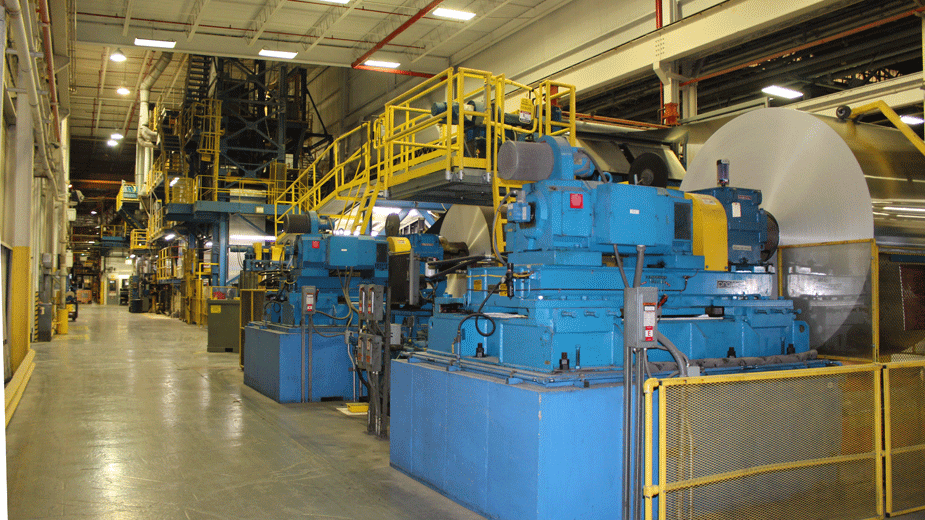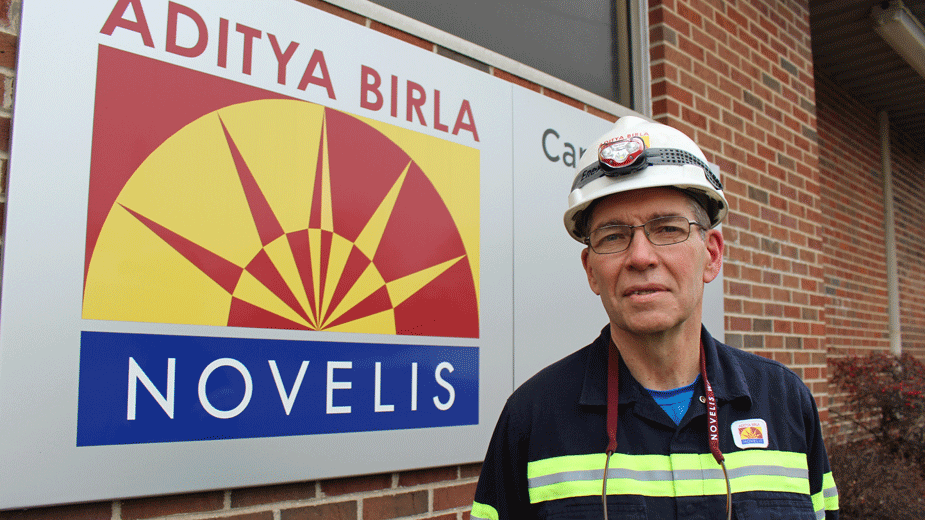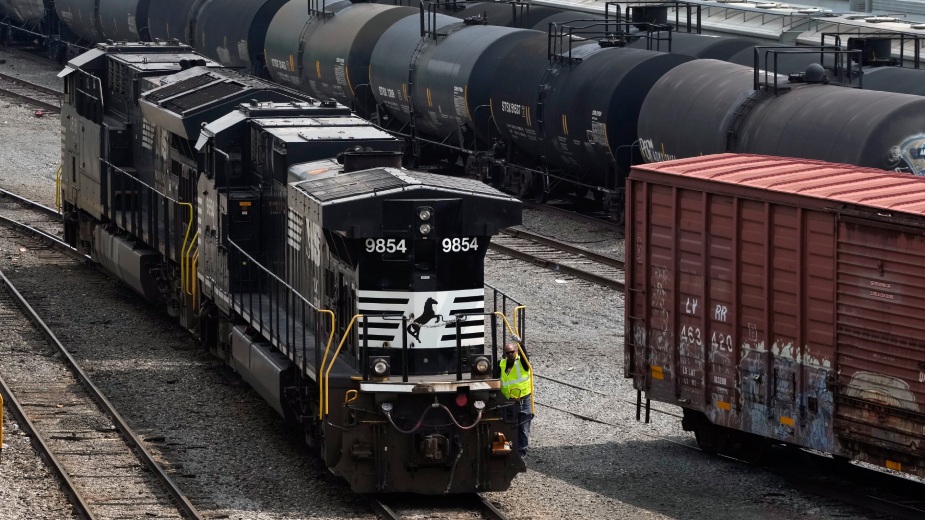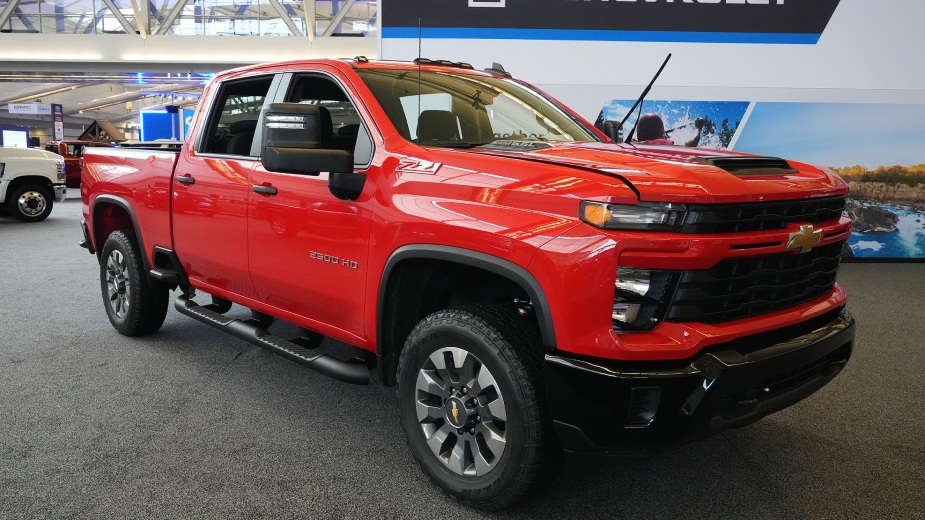Novelis Invests $4.5M in Century-Old Plant
WARREN, Ohio – As you walk through the Novelis Inc. plant at 390 Griswold St. NE in Warren – a large building filled with some of the most modern processing equipment used in industry today – you can see visual clues to the bygone days of American manufacturing.
In some parts, brick flooring reveals portions of the original building constructed more than 100 years ago to support America’s entry into World War I. Back then, workers manufactured components for the U.S. Navy. During World War II, the plant was commissioned to build landing gear systems for combat aircraft.
“There’s a section of the plant I think that was built before 1917,” says plant manager Paul Nelson. “You can tell by the architecture.”
A century later, the building where machinery was once driven by turn-of-the-20th-century belt technology is being infused with a $4.5 million investment to make high-tech improvements to its automated aluminum coating line. “We needed to do something to make our aluminum sheet preparation more robust,” Nelson says.
Novelis – today a division of Aditya Birla Group, a multinational conglomerate based in Mumbai, India – provides coating and slitting services on aluminum coil processed for aluminum can manufacturers in the U.S. market. More specifically, the aluminum sheet processed at the Warren plant is used to manufacture beverage can lids. The operation supplies enough aluminum to support one billion lids per month.
In the domestic market, for example, there’s between a 50% and 60% chance that the aluminum lid that tops a can of Coca-Cola, Pepsi, or Ball was made of metal processed in Warren, Nelson says.
Over the last century, the building’s footprint has undergone a long line of major expansions. The largest came in 1965 when Alcan Industries Ltd. – Alcan is the acronym for Aluminum Company of Canada – acquired the plant and started to process aluminum coil to serve the growing U.S. market.
“I started working here in 1981,” Nelson says. At that time, the 429,500-square-foot building housed a rolling mill, multiple slitting and processing lines and employed more than 100 people. Then, in 1986, the company underwent a major downsizing and the number of employees dwindled to about 30, he recalls. At that time, the company repurposed its target market and began supplying aluminum for the “can end” industry, Nelson notes. “There were over 20 in the technical department who lost their jobs,” he says, “and I was fortunate.”
In 2007, Rio Tinto acquired Alcan and then spun off its aluminum division as Novelis. Today, Novelis is the only company that manufactures premium rolled aluminum products on four continents – North America, South America, Europe and Asia, according to the company’s website. Novelis operates nine manufacturing and processing plants in the United States and one technology center. It is also the world’s largest aluminum recycler.
The Warren plant of today is far different from its origins. The interior is flush with bright light. Supervisors and quality managers navigate the length of the long rectangular building by riding heavy-duty tricycles.

“We have 75 employees now,” Nelson reports. The heart of the company’s operation is its coating line – a highly automated system that only needs five workers to operate.
While many employees are heartened at the prospect of new investments in the Warren plant, others remain apprehensive, Nelson says, because they were hired after their previous employers closed.
Among those who began working at Novelis after he lost his job at a steel pipe and tube manufacturer in Pennsylvania is Mark Nichols, process leader.
“I worked at Sawhill Tubular,” Nichols says. “A lot of the guys here get nervous because most of them at some point worked somewhere else.”
Yet, turnover is practically nonexistent, he says. “It’s a great place to work,” he says. One employee, he relates, has been with the company 50 years.
The new investment is directed at improving the pretreatment process used on aluminum coil, enabling the plant to incorporate a roll-on dry-in-place coater and oven to its operations. “It allows more versatility in applying pre-treatments,” Nichols says.
A Novelis plant in Russellville, Ky., ships 40,000-pound coils of aluminum to Warren for processing. Each coil is fed into the coating line one after the other – the end of one spliced to the head of the next coil as it enters the line. “That way, we’re just continuously running,” Nelson says.
Before the aluminum sheet is coated, it needs to be cleaned and pretreated, Nichols says. Once a pretreatment is applied, the sheet moves through several rinse stages before coating begins. Once the coil is rinsed, it’s dried in the line’s oven before the coating is affixed.
Two types of water-based coats, clear and gold, are applied to the aluminum, Nichols notes.
Once the coating is applied, the coils move through a finishing process that includes feeding the aluminum through a tall exit tower and then applying a heated lubricant to the metal, Nichols says. “It helps move our sheets through our customers’ presses,” he says. The master coil is slit into two coils that are shipped to beverage can manufacturers.
“For the most part, the entire system is automated,” Nichols notes.
“The can end market has grown over the years,” he says, with upgrades in coating technology and equipment beginning during the late 1990s. “In 1986, the coating line ran at about 300 feet per minute. Today, we’re at 900 feet per minute, which is, I’m sure, the second-fastest coating line in the United States.”
While investing $4.5 Million into the operation bodes well for the plant’s future, it also helps other local companies that will be involved in the upgrades. Warren-based Ajax Tocco is building the furnace and the project manager is a graduate of Youngstown State University.
“We’re partnering with YSU with research on evaporation during the pretreatment process,” Nelson says. “This is good for Warren and the area.”
Pictured: Paul Nelson manages the plant that was built 100 years ago to make military components during World War I.
Copyright 2024 The Business Journal, Youngstown, Ohio.



